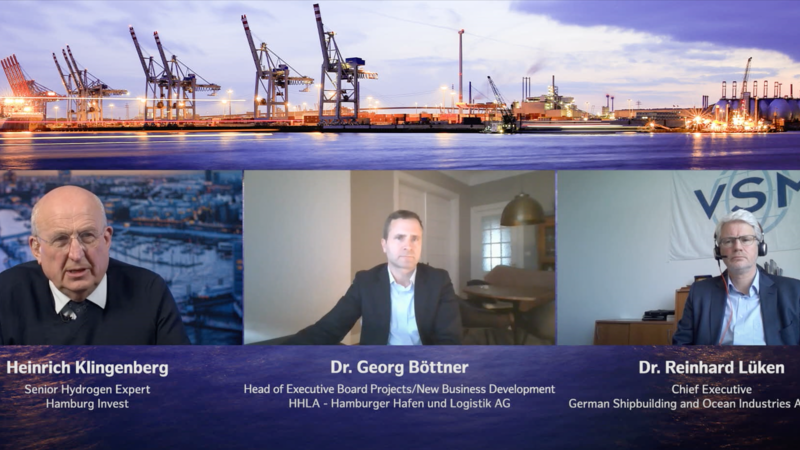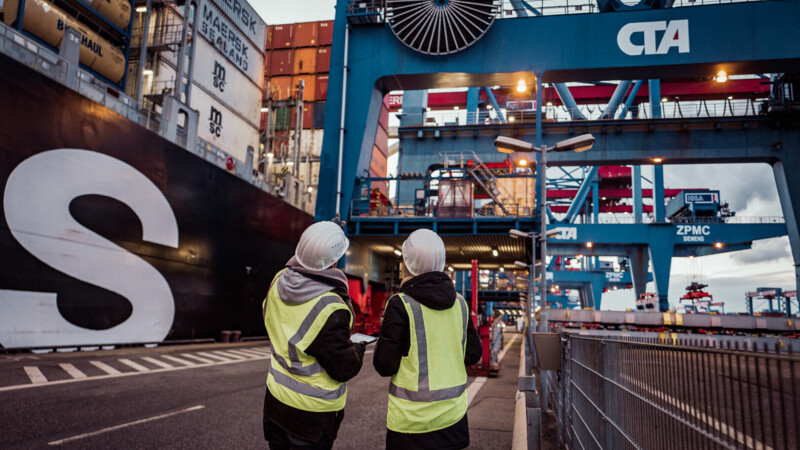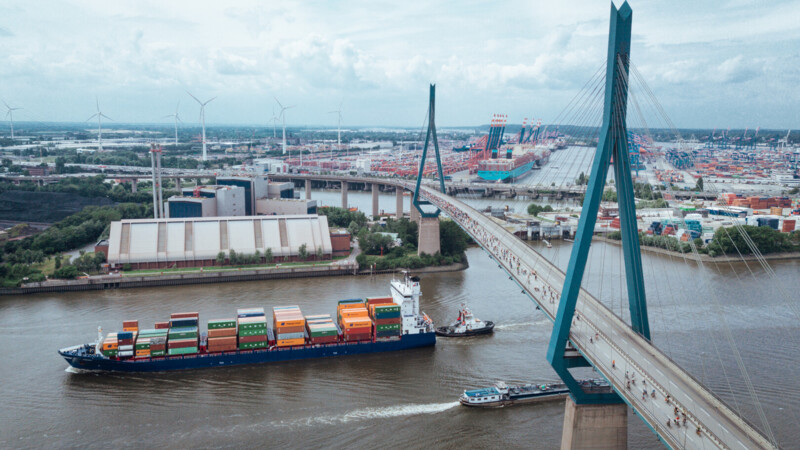Release orders been so far been exchanged per fax, e-mail or telephone. DAKOSY and dbh are now about to digitalize the release process for import containers in the ports of Hamburg, Bremerhaven, Bremen and Wilhelmshaven and will make blockchain technology available to their users. In Hamburg, the solution will be integrated into the Import Message Platform (IMP), and in the ports of Bremen and Wilhelmshaven, as a part of the Business Integration Platform (BIP). "Parallel to the proven IMP and BIP platforms, we are building the framework for blockchain to make it available as a hybrid alternative in the next step. We are already preparing the test phase," said Holger Hübner, Head of Port Solutions at dbh. Blockchain’s suitability and practicality for the release process had earlier been confirmed as part of the IHATEC research project ROboB (Release order based on blockchain) undertaken from 2018 to 2020 in the Port of Hamburg.
The Hamburg-based DAKOSY AG and dbh Logistics IT AG in Bremen, both of whom specialize in port community systems, are developing a joint solution for the digitalized release of import containers, a press release said Wednesday (September 1, 2021) . The first shipping companies and forwarders will be connected to the platform, which will be marketed as "German Ports", by late 2021.
Solution to replace previous means of communication
Blockchain - forgery proof, decentralized and transparent
Dirk Gladiator, Authorised Officer at DAKOSY, commented: "Our solution for the digitalized release process is based on existing platforms and processes that are already being extensively used by stakeholders in German seaports." The established IMP and BIP platforms and the optional addition of blockchain will meet the stringent requirements for accessing authorizations and secure IT processes. Release is a sensitive process as the release order entitles the holder to release the container. Until now, authorized importers had to identify themselves with a special bill of lading (B/L) at the terminal. No errors are permitted given the considerable value of the goods. The new solution is likely to raise efficiency and expedite the process.
cb/sb/kk
Sources and further information
What is a blockchain
A blockchain is a system in which a record of transactions made in bitcoin or another cryptocurrency is maintained across several computers that are linked in a peer-to-peer network. The database is expanded chronologically in a linear fashion similar to a chain, which adds new elements at the lower end. When a block is complete, the next one is created. Each block contains a checksum of the previous block to protect the technology from manipulation.
More
Similar articles

Future Hamburg Talk: Hydrogen in port logistics and shipping

Promising fields of application for AI in Port of Hamburg

Senate steps up plans for BOSS pilot project in Port of Hamburg
